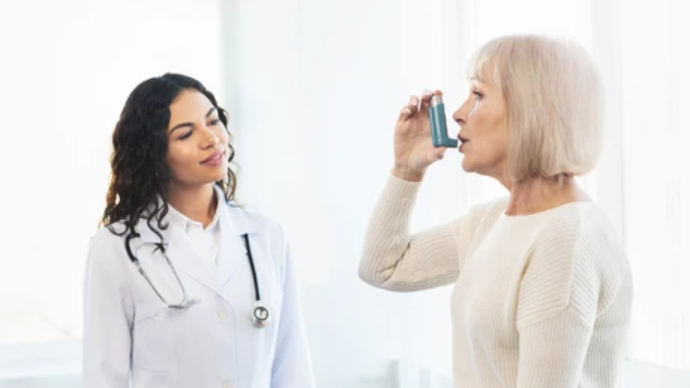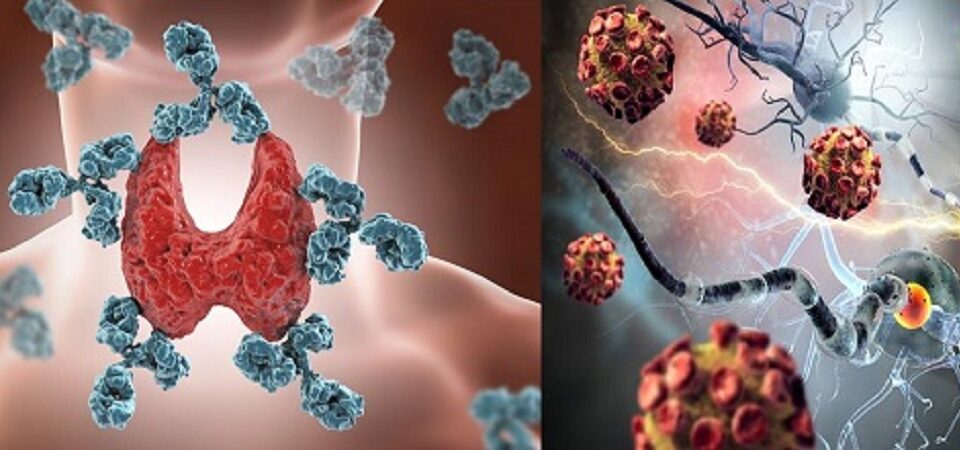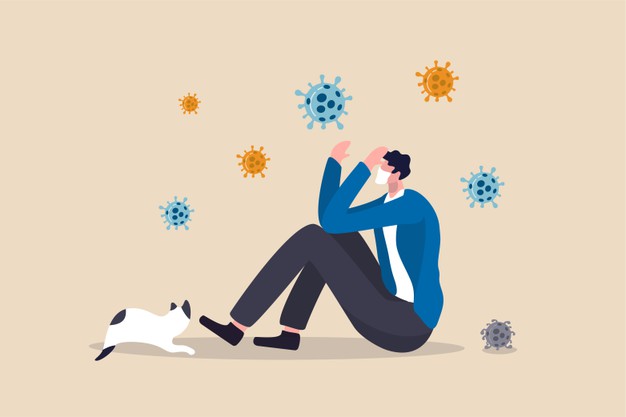
Role of Psyllium Fiber as dietary intervention in management of hyperlipidemia
May 3, 2021
Chocolate lovers may also be in for a Healthy Heart
May 20, 2021Reviewer: Dr. Abid
Corona virus disease 2019 (COVID-19) is a viral disease caused by Severe Acute Respiratory Syndrome Corona Virus 2 (SARS-CoV-2). It is a single stranded RNA (ribonucleic acid) virus which can enter cells with the help of its spike proteins. It usually takes 14-15 days for the symptoms of the disease to appear. Though most of the infected individuals develop mild to moderate illness but some may develop severe disease requiring hospitalization and may also need intensive care treatment. Corona virus mostly affect the respiratory system, however the virus may impact other systems of the body.
As the COVID-19 pandemic first spread across the world concerns were raised that people with asthma might be at a higher risk of becoming infected, or developing severe disease or even death.
Asthma is a chronic or long-term respiratory disease that affects many people throughout the world. Asthma occurs due to inflammation and narrowing of the airways. The respiratory airways include the trachea or the wind pipe which divides into two large tubes the bronchi, smaller tubes called bronchioles and tiny air sacs called the alveoli. When asthma occurs the lining of the airways swells due to inflammation and muscles around them tighten; and also there is excess production of mucus resulting in plugging of airways and this makes breathing very difficult.
It affects people of all ages and some of the common signs and symptoms may include; coughing especially at night or during exercise, fatigue, wheezing or whistling sound when exhale, shortness of breath and chest pain etc.
The precise cause of the disease is not known but health experts suggest that it is probably caused by interplay of environmental and genetic or inherited factors. Moreover, asthma may occur randomly or after exposure to triggers such as; pollution, cold air, smoke, infections (cold or flu), exercise, allergies to animal fur, pollen, house dust mites etc.
It is important to follow the treatment guidelines advised by the health experts to avoid risk of severe asthma attack which could be life threatening. Physicians usually manage the symptoms of the disease by prescribing medications which can help reduce inflammation such as corticosteroids; or medications which relax the muscles that surrounds the airways to ease the symptoms of asthma.
It has been reported through previous studies that people with chronic respiratory conditions like asthma were at greater risk of becoming infected during the Middle East Respiratory Syndrome (MERS) outbreak caused by a virus of similar structure to COVID-19. This lead to, scientists at George Institute for Global Health in Australia analyzed data from 57 studies with an objective to assess how COVID-19 affects people with asthma. The study has been published in the Journal of Asthma; this study included a total of 587,280 participants and the average age of the participants was roughly 52 years. It was observed during the studies that almost 350,000 people in the study group had been infected with COVID-19 from Asia, Europe and North and South America.
A similar proportion of COVID-19 infection was observed in asthmatic individuals as that of the general population and that there were just over seven in every hundred people who tested positive for COVID-19 also had asthma, when compared to just over eight in hundred people in the general population.
Furthermore, the studies also showed that people with asthma had a 14 percent lower risk of acquiring COVID-19 and were significantly less likely to be hospitalized with the virus. There was no apparent difference in the risk of death from covid-19 in people with asthma when compared to those without asthma.
Researchers have suggested that some possible explanations for these findings such as; some inhalers (medical device used to deliver medicines into lungs through work of a person’s breathing) used by asthmatics perhaps could be responsible to limit the virus’s ability to attach to the lungs. They further explained that the receptors in the lungs that the virus binds to are less active in people with a particular type of asthma and some studies even suggested that inhaled corticosteroids which are commonly used to treat asthma may have a role in reducing the COVID-19 activity even further. Initial uncertainty about the impact of COVID-19 in asthma may have caused anxiety among patients and care givers leading them to be more vigilant about preventing infection which could have also lead to the results observed in the study that was conducted.
However, the studies also revealed that increasing age was strongly associated with an increased risk of acquiring COVID-19 among asthma patients. Researchers commented that this is an expected finding and in line with other COVID-19 studies showing age as one of the most important predictors for vulnerability to COVID-19 and prognosis (outcome of disease).
Moreover, the research team suggested that respiratory infections like those caused by corona viruses can exacerbate asthma symptoms and corticosteroid treatment may increase susceptibility to COVID-19 infection and its severity. However, this study using the best evidence available on the risk of infection, severe illness requiring admission to intensive care unit or ventilator use and death from COVID-19 in people with asthma finds no significant difference of people with asthma being at higher risk compared to those without asthma which was reassuring.
To test the hypothesis raised on role of asthma inhalers in particular those that contain steroid medication such as budesonide, recently, scientists from Oxford University conducted studies in older people infected with COVID-19 called (PRINCIPLE) trial, with an objective to find clear evidence of an effective COVID-19 treatment for use in the community that can significantly shorten recovery time. The studies have shown that early treatment with inhaled budesonide shortens recovery time by average of three days in patients aged over 50 years with COVID-19, who are at higher risk of more severe illness and are at home and other community settings.
Inhaled budesonide is a corticosteroid (medication) which is commonly used around the world in inhalers (it is a medical device used to deliver medicines into lungs through the work of a person’s breathing) to treat asthma and chronic obstructive lung disease (chronic inflammatory lung disease); which is considered relatively safe and inexpensive, also this is readily available through pharmacies, however as this is a controlled medication, requires a prescription.
The clinical trial included a total of 1,779 participants. Budesonide arm was added to the ongoing PRINCIPLE trial on 28th November 2020; recruitment for the inhaled budesonide arm of the trial stopped at 31st March 2021 when enough data was available to determine assessment of the effect of this treatment.
Moreover, for the primary interim analysis (In scientific studies an interim analysis is an analysis of data that is conducted before all study data collection has been completed) a total of 961 patients were randomly assigned to receive inhaled budesonide at home and were compared with 1819 patients randomly assigned to the usual standard of NHS care (United Kingdom National Health Service); of these 751 people in the budesonide group and 1028 people in usual care group were SARS-CoV-2 positive suggestive of having COVID-19 infection. During the studies patients treated with budesonide were asked to inhale 800 micrograms twice a day for 14 days and were followed-up for 28 days.
It emerged through the interim analysis using latest data from 25th March 2021 that estimated average recovery time according to self-report for inhaled budesonide was 3.011 days shorter compared to usual care; 32% of those taking inhaled recovered within the first 14 days since being randomized into the trial and subsequently have remained well until 28 days, when compared to 22% in the usual care group. Participants in the budesonide group also reported greater well-being after two weeks.
Furthermore, among patients who had completed all 28 days of study follow-up by 25th March 2021, 8.5% in the budesonide group were hospitalized with COVID-19, when compared with 10.3% in the usual care group. As fewer than expected people were admitted to hospital in the trial and with COVID-19 cases and hospitalizations continuing to drop in UK, it was not clear from interim analysis whether budesonide had an effect on reducing hospitalizations.
Researchers from University of Oxford’s Nuffield Department of Primary Care Health Sciences claimed that ‘PRINCIPLE’, the world’s largest platform trial of community-based treatments for COVID-19 has found initial evidence that a relatively cheap, widely available drug with very few side effects helps people recover quicker, stay better once they feel recovered; and improves their well-being and budesonide could be considered as an effective treatment at home and during the early stages of illness. They further added that they expect that medical practitioners around the world caring for people with COVID-19 in the community may wish to consider this evidence when making decisions as it should help people with COVID-19 recover quicker. However the evidence on whether this reduces the risk for hospitalization still remains less clear. As soon as all the remaining patients in the trial have completed their follow-up and full analysis has been completed, detailed results on time of recovery and hospitalizations will be published.
REFERENCE:
Asthmatics at no higher risk getting or dying from COVID-19, assessment of studies consisting of 587,000 people shows
https://www.sciencedaily.com/releases/2021/02/210219091850.htm






